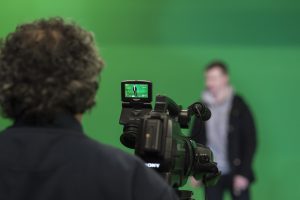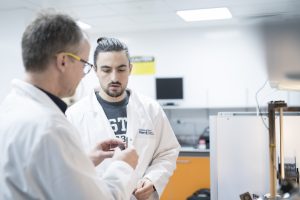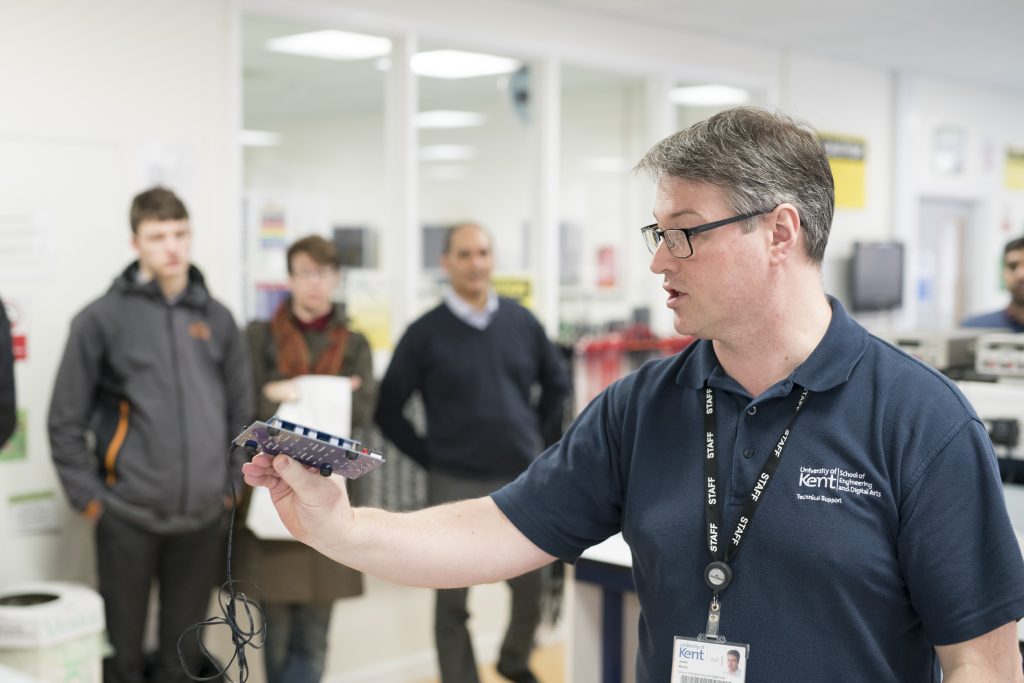Having worked alongside technicians throughout my career I have seen on a daily basis the positive interactions and working relationships that technical staff of all subjects form with students and staff. Traditionally labelled as coaching, supporting or instructing, technicians have always been involved in transferring their skills and knowledge to students in one way or another. Within the School of Engineering and Digital Arts (EDA) technicians join the technical team from a variety of backgrounds. From academia to industry, EDA technicians bring with them both academic recognition and also extensive practical, industry relevant skills and experience essential to the subject. It is an ability to translate the theoretical to practical, interpreting industrial application and being able to draw on their extensive experience that technicians are known for “making things happen”.
It has been through these interactions and relationships with technicians and students that has led the EDA technical team to develop a new initiative called “Technician Led Teaching”. This initiative enables technical staff the freedom to work alongside academics and deliver independently and unsupervised the practical elements of the undergraduate programmes. From sessions such as, the use of instruments, soldering, PCB design, CAD, photography, and videography, technicians now work alongside module convenours and programme chairs, designing course material and delivering that material directly and independently to students. By positively allocating time and resources, technicians have been able to find space to develop and deliver these sessions.

These practical sessions within EDA have had a positive impact in a number of areas. Feedback from students indicate that they really benefit from the nature of the teaching designed by technicians which incorporates their extensive hands on experience as well as aligning skills directly to industry. Further to this, feedback has shown that by embedding these skills at an early stage students are more prepared for future learning in the programme and less likely to need extensive support at a later date. Spending time with technical staff in a taught environment has made the transition to interacting with those same members of staff at a later date easier and less intimidating. Overall technician led teaching has demonstrated that this interaction is having a positive impact on student experience and academic outcomes.

This initiative has also had a positive impact on those technicians who previously had ambitions to step into teaching but felt it was out of reach. It has enabled technical staff the opportunity to take up additional training to support their teaching ambitions as well as giving them a greater understanding of the overall teaching process and how this links to the programme and their work.
Finally, for many students studying practical subjects they will interact with technicians more than any other member of staff. By building positive working relationships and increasing interaction with students this has enabled technicians to identify students that are struggling both academic and personally. This is a positive step to identifying early student wellbeing concerns and providing signposting to other support services such as mental health support.
Paul Sinnock | Director of IT and Technical Services, School of Engineering and Digital Arts, University of Kent

